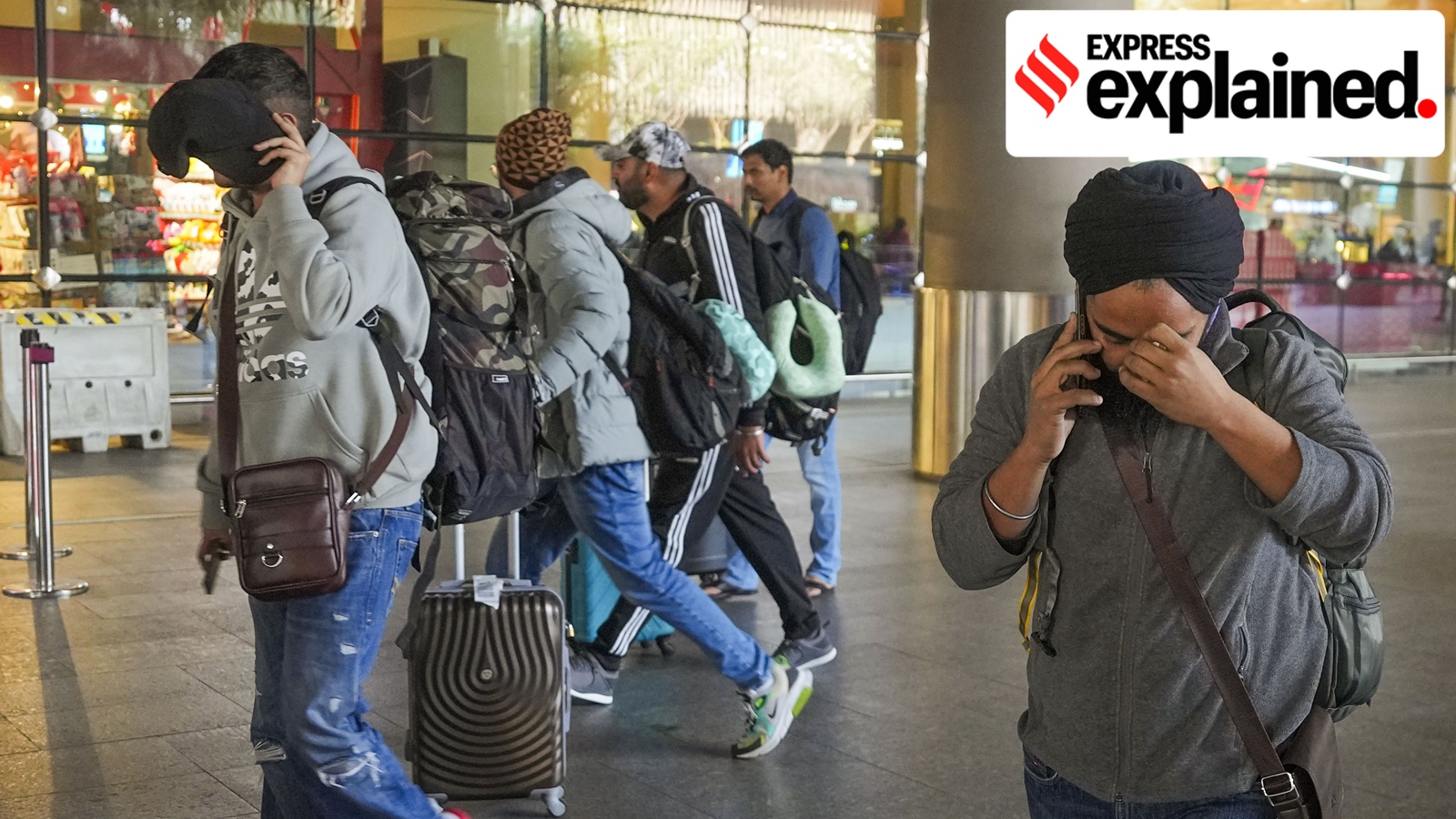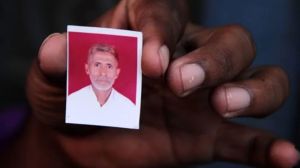Indians aboard grounded charter flight return to Mumbai: what rules face those who stayed back in France
Twenty-five passengers on the flight to Nicaragua, which was grounded over a human trafficking probe, have chosen to request asylum in France. France, generous to asylum-seekers, has recently passed a bill tough on immigrants. Here's what it says
 Passengers of a charter plane, which was grounded in France for four days over suspected human trafficking, arrive in Mumbai, Tuesday, Dec. 26, 2023. (PTI Photo/Shashank Parade)
Passengers of a charter plane, which was grounded in France for four days over suspected human trafficking, arrive in Mumbai, Tuesday, Dec. 26, 2023. (PTI Photo/Shashank Parade)A charter plane grounded in France for a human trafficking investigation reached Mumbai early on Tuesday (December 26), with 276 Indians aboard. The passengers had been heading to Nicaragua but their flight was stopped at the Varty airport in France, where it had stopped for refueling on its journey from Fujairah in the United Arab Emirates to Managua, Nicaragua.
It is not yet clear why the Indians were flying to Nicaragua, and if their final destination was the US or Canada, which people often enter illegally from South American countries. Twenty-five of the passengers did not return to India, instead requesting asylum in France. They were transferred to a special zone in Paris’ Charles de Gaulle airport for asylum-seekers.
What benefits does France offer asylum-seekers?
France has had a generous system for asylum-seekers, providing them upto 300 euros a month while they wait for their papers to be processed. They can apply for housing in the hundreds of asylum-seeker housing projects across the country, and cheap meals are often easily available at food banks. They also get free health insurance while their application is being reviewed, according to Euronews.
Foreign residents get social security benefits, which includes assistance in paying rent, childcare, etc.
However, all of this is set to change with a new, tougher law on immigration, which cleared Parliament on December 19.
What does the new law say?
The new law has deepened faultlines in the centrist coalition headed by President Emmanuel Macron. The left-of-centre parties in France have said the Bill echoes the anti-immigrant rhetoric of the far right. Macron’s far right challenger, Marine Le Pen, has called the bill “a great ideological victory” for her party, National Rally. The health minister, Aurelien Rousseau, has resigned in protest.
A previous version of the Bill had to be rejected, and several of its provisions tightened, to make sure it passed Parliament.
Some key changes the Bill brings in include:
Longer wait for non-EU migrants to get welfare: People not from European Union countries who are working in France will have to show they have been in the country for 30 months before they can receive social welfare benefits. Those not working will have to wait five years.
Review of medical care access: Over the coming year, the government will review current legislation that provides illegal residents unlimited access to government-funded medical care, reported Reuters.
Asylum-seekers can be detained: Asylum seekers whose behaviour constitutes a threat to public order can be placed in preventive detention, notably if there is a risk that the asylum seeker would flee, Reuters reported.
Tougher citizenship rules: Children of foreigners born in France will no longer get French citizenship automatically. They will have to request citizenship once they turn 16. The French nationality of dual-nationals can be revoked if they are convicted of the voluntary homicide of a police officer or government representative.
Students have to make a deposit: Foreign students requesting a student residency permit, unless they have financial needs or excellent academic results, will have to make a refundable deposit to cover potential “sending back” costs. This is a provision Maron himself has said he “doesn’t like”, and will look at reworking.
‘Easier’ permits for sectors seeing labour shortage: A measure the government has touted as helping migrants is that non-EU foreigners working in areas with a labour shortage, such as hospitality, construction and farming, can apply for a residency and work permit. Interior Minister Gérald Darmanin said this would allow 7,000 to 10,000 undocumented migrant workers a year to obtain residency permits.
When will the law come into effect?
The bill will go to the Constitutional Council, which will check if it complies with the French constitution. It can strike down provisions it believes are unconstitutional. Only after this will Macron sign it into law.
With inputs from agencies
- 01
- 02
- 03
- 04
- 05






































